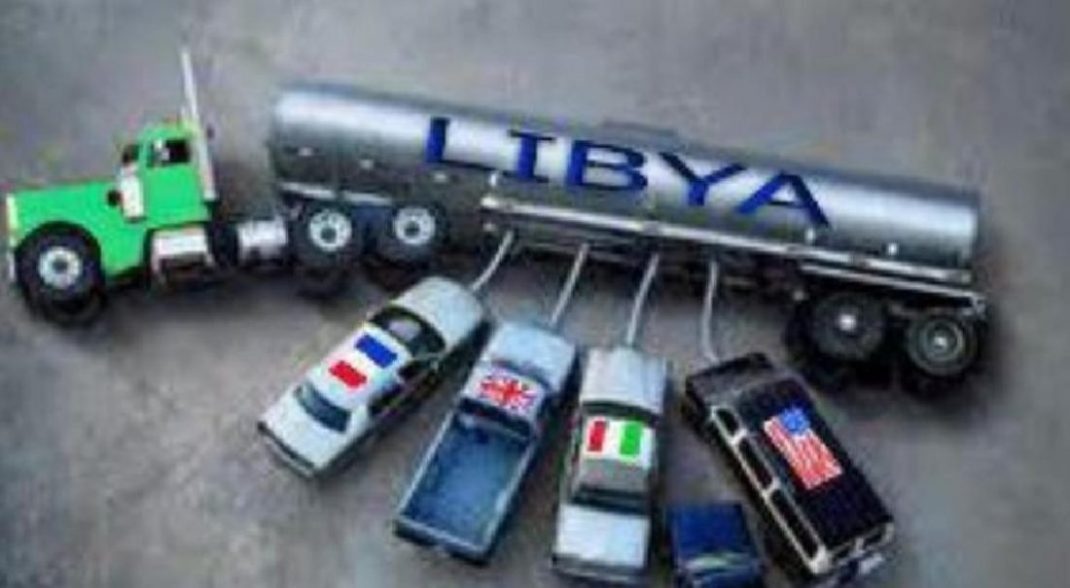Alexander Chekashev

For more than a decade after the overthrow of Muammar Gaddafi’s regime, Libya remains an unstable region where the interests of internal actors and external forces intersect. Although media attention is focused on the protracted conflict between the UN-recognized Government of National Unity (GNA) in Tripoli and the Libyan National Army (LNA) led by Khalifa Haftar, the fundamental causes of the crisis are largely related to the struggle for control of energy resources.
With reserves of 48 billion barrels, Libya has the largest oil reserves not only in North Africa, but also on the entire continent. Until 2011, production was centrally regulated through the National Oil Company (NOC), founded in 1970, but after NATO intervention, state control over the fields was lost, which led to the fragmentation of the sector, a sharp drop in production and an increase in the black market.
Formally, the civil war ended with the signing of a ceasefire agreement between the GNA and the LNA on October 23, 2020, but in fact, destabilization remains, as does the rivalry for control over strategic resources. The term “corporate oil wars” describes an informal conflict in which state-backed multinational oil companies (TNCs) fight for access to oil assets. In Libya, this conflict manifests itself in the form of covert financing of armed groups, the involvement of private military companies (PMCs) and the sabotage of oil infrastructure.
Eni (Italy), TotalEnergies (France), BP (UK), ExxonMobil and ConocoPhillips (USA) have maintained interest in Libya’s oil sector since 2011. Despite having formal agreements with the government in Tripoli, these companies also interact with Haftar’s eastern government and southern groups that control key fields.
Particularly revealing is the conflict of interest between Eni and TotalEnergies, reflecting the long-standing geopolitical rivalry between Italy and France, which have historically competed for influence and before that for colonies in North Africa. Eni maintains close ties with the PNU, while TotalEnergies actively cooperates with the Haftar administration. In this case, we can see how corporate and economic interests reflect broader geopolitical divisions within the European Union and the struggle for their vision of energy security.
U.S. companies have taken a more restrained approach but still retain a stake in oil fields. A significant element was, according to some sources, the involvement of PMCs, in particular Blackwater (now Constellis), allegedly involved in the protection of US oil facilities, which indicates the presence of hidden coordination between TNCs, PMCs and local groups. Despite attempts by the Libyan government to tighten control, the oil industry remains an arena for informal deals, where security is often traded for access to resources.
Against the backdrop of continuing political divisions, Libya is once again becoming an important player in the global energy market. After years of civil war, fragmentation in governance and infrastructure problems, Libya’s oil sector is seeing a new surge in activity. But the corporate oil wars continue: the big international oil companies are returning, but with them are the risks of political division, illicit trade, and the involvement of foreign private military companies.
In 2025, NOC recorded an increase in production to 1.3-1.4 million barrels per day, with a target of 1.6 million, subject to political stability. A landmark event was the announcement of the first tender for the development of fields in 17 years, which aroused the interest of 37 international companies, including TotalEnergies, Eni, Chevron, ExxonMobil, OMV, Repsol, etc.
Recent initiatives include:
Signing of a 10-year memorandum of understanding by ExxonMobil to conduct exploration in four offshore areas; Expansion of TotalEnergies‘ production at the Vakha and Sharara fields, as well as exploration in the Sirte and Murzuq basins; and Eni’s implementation of a large-scale gas project in Zone D offshore Libya, where it plans to produce up to 750 million standard cubic feet of gas per day from 2026.
These steps reflect not only the growing interest in the Libyan market, but also Europe’s strategic desire to diversify its energy supply sources against the backdrop of restrictions on imports from the Russian Federation.
Management and security issues
Despite partial stabilization, Libya remains a country with two competing governments, which hinders the effective management of oil assets and the equal distribution of income. Disputes continue over control over the Central Bank, the NOC, and payments to civil servants.
An example of decentralization was the emergence of a private company Arkenu Oil, associated with Haftar’s son, which exports oil bypassing NOC.
Along with this, the following are preserved:
oil smuggling and barter transactions; unauthorized exports; control of infrastructure by armed groups, especially in the Fezzan regions and on the border of the zones of influence of the GNA and LNA; the presence of PMCs that protect facilities and influence the distribution of resources.
This situation with the most important resource does not contribute to the protection of the country’s sovereignty. While the Libyan administration, through the national oil company, is trying to establish centralized control over oil resources, most of them are actually controlled by private companies and sometimes local groups. Legal, financial and infrastructure risks remain high.
Contract negotiations are taking place in an environment where political agreements can be terminated, production can be stopped due to local unrest or power struggles, and it is difficult to ensure the safety of personnel and infrastructure. These factors continue to discourage some risk-averse investors and lead to the creation of a shadow oil market and increased PMC activity in the region.
***
The signing of new contracts and the involvement of foreign oil companies indicates a restoration of confidence in the market, but also leads to increased competition for resources and influence in Libya. The potential recovery of production makes it a strategically important player against the backdrop of the global energy crisis and sanctions against other suppliers, and the publication of the first tender in many years indicates the stabilization of the political process and fuels interest in the Libyan market from Europe and North America.
However, in the context of political fragmentation and weak state institutions, the struggle for control of resources, infrastructure and export routes is also intensifying. Libya remains a field of intense confrontation between the largest energy corporations, states and informal structures.
The country’s corporate oil wars are not a theory, but a reality, manifested through contracts, infrastructure protection, middlemen, and informal deals. For Libya’s sustainable recovery, it is not enough to increase production volumes, institutional consolidation, transparency of governance and reduced dependence on external forces are needed.
The scenario unfolding in Libya could become a model for future conflicts in other energy-rich but politically vulnerable regions of the world.
____________________




